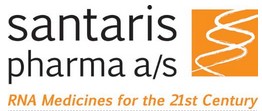
Santaris Pharma A/S, a privately held biopharmaceutical company, announced today that they have signed a worldwide strategic alliance with Roche to discover and develop novel RNA targeted medicines using Santaris Pharma's proprietary Locked Nucleic Acid (LNA) Drug Platform.
Under the terms of the agreement, Santaris Pharma and Roche will collaborate on the discovery of LNA drugs against a multitude of targets across several disease areas. Roche will be responsible for the subsequent development and commercialization of products arising from the alliance. Santaris Pharma will receive an upfront payment of $10 million in cash, up to $138M in potential pre-clinical, clinical, regulatory and sales milestones per product, and funding of ongoing discovery and research activities. In addition, Santaris Pharma will be eligible to receive royalties on the worldwide sales of all medicines arising from the alliance.
Announcing the alliance, President and CEO of Santaris Pharma, Dr. Don deBethizy, said: "We are delighted that Roche has deepened its commitment to the field of oligonucleotide therapeutics and we are obviously proud and honored that they have chosen Santaris as their partner. This is a very important deal to Santaris and we look forward to working closely with the Roche teams in our joint pursuit of novel, breakthrough drugs."
Dr. John Reed, Head of Pharma Research and Early Development (pRED) at Roche stated: "We are very pleased with our new partnership with Santaris. We believe the LNA drug platform provides the means to discover novel drugs against a range of targets of high clinical relevance that are difficult – or impossible - to target with other drug platforms. As such, the partnership will increase our ability to discover and develop important novel medicines that can address significant unmet needs in critical therapeutic areas."
About Locked Nucleic Acid (LNA) Drug Platform
The LNA Drug Platform and Drug Discovery Engine developed by Santaris Pharma A/S combines the company's proprietary LNA chemistry with its highly specialized and targeted drug development capabilities to rapidly deliver LNA-based drug candidates against both mRNA and microRNA, thus enabling scientists to develop drug candidates against diseases that are difficult, or impossible, to target with contemporary drug platforms such as antibodies and small molecules. The LNA Drug Platform overcomes the limitations of earlier antisense and siRNA technologies through a unique combination of small size and very high affinity that allows this new class of drugs candidates to potently and specifically inhibit RNA targets in many different tissues without the need for complex delivery vehicles. LNA is also sometimes referred to as BNA (Bicyclic or Bridged Nucleic Acid).